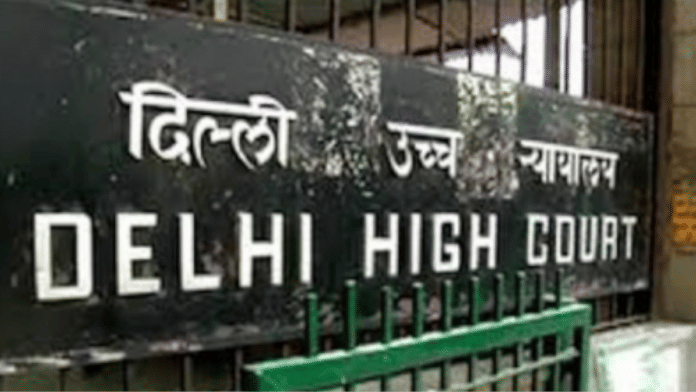New Delhi: The exception for marital rape in the Indian Penal Code (IPC) is an “exemption more than an exception”, said senior advocate Rebecca John in the Delhi High Court Thursday.
The court is hearing a petition to have Exception 2 to Section 375 of the IPC read down, and John and senior advocate Rajshekhar Rao are helping the court in the role of amicus curiae (friend of the court). Under this exception, non-consensual sex between a married couple does not come within the ambit of rape.
John submitted before a bench led by Justice Rajiv Shakdher that there are varying degrees to the expectation of meaningful conjugal relations in a marriage. She contended that the world has changed by leaps and bounds, and the notion of marriage as an alliance of unequals cannot be allowed to continue.
“It neither reflects the Indian man nor the Indian woman, and absolutely not the Indian marriage,” she said.
‘Exception is not absolute’
John attacked the fundamental basis for the exception in the statute. An exception, she said, is not absolute. If a woman’s health does not permit her to have sexual relations, can it (exception) still be called absolute, she asked.
The exception is a “legal fiction” that is more in the nature of an exemption or immunity for the husband, John argued. Its dilution would not only uphold a woman’s bodily integrity and give fair play to the definition of the offence of rape, but also make people notice that there are consequences to such actions.
She also contended that penal provisions must be invoked in circumstances where there is a unilateral expectation of such relations coupled with a “physical act based on coercion and force” in express disregard of the law.
John shared several news reports with the court where women were gang-raped and their husbands were among the perpetrators. In these cases, while the others involved were punished, the husbands were protected. “This is an absurdity,” she said.
The provision must be tested on the touchstone of the effect on the guarantees of freedom and not merely the objectives of the state. She submitted that the provision “in effect leads to a woman being violated without recourse and is an “instrument of oppression”.
John said “the woman’s freedom to say no” was being curtailed, when asked which freedom the exception violated.
She extensively relied on the Joseph Shine case, which held unconstitutional Section 497 of the IPC (adultery), reading out portions from the judgment and submitting that it was analogous to the situation at hand.
“Exception 2 to Section 375 also reflects the same antiquated notion (of a marriage) between unequals, and the law must reflect their status as equals entitled to privacy and dignity,” she submitted.
She further contended that removing the exception would not lead to a new offence but bring it in accordance with constitutional values. “The offence under Section 375 remains. It is only a class of individuals (husbands) who enjoyed legal immunity from prosecution,” she said.
Also read: Men on ‘marriage strike’ against marital rape laws. Some people laugh, say good riddance
Centre asks for ‘reasonable time’, court says it has to ‘take a decision’
The government of India has asked for some time to place before the court its stand on the issue. In its previous affidavits, the government had maintained that criminalisation of marital rape would “destroy the institution of marriage”.
However, Solicitor General Tushar Mehta informed the court last week that a consultative process on the issue was ongoing. Subsequently, another government counsel, Additional Solicitor General Chetan Sharma, sought two weeks’ time to file a written response in court.
In response, the bench told both counsel that it wants to conclude the hearing soon and it “cannot go on forever”.
“In a matter like this, they have to say either a yes or a no. No matter how much they deliberate, it may not come to an end. They have to take a decision,” said Justice Shakdher this week.
‘You slept all this while’
At the outset of Thursday’s hearing, the court also rejected an impleadment application filed by a lawyer to allow him to argue in the matter.
The bench did not look kindly on the petition and insisted that he pass on his suggestions to the arguing counsel already before the court.
“It’s like saying we are a postbox. You will keep dumping it in, and we will keep on reading…These proceedings have been going on for years. You slept all this while. We are now towards the end of the proceedings,” Justice Shakdher said.
Akshat Jain, a first-year student of law at NLU, Delhi, is an intern with ThePrint
(Edited by Rohan Manoj)
Also read: If it’s rape, problematic to exclude it from punishment because of marriage, Delhi HC observes






